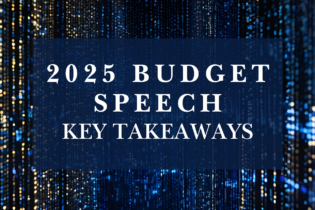
Auditor-General Thembekile Makwetu
Were it not for the slow response in addressing audit recommendations aimed at improving internal control systems and eliminating governance risks, the national and provincial governments would have recorded impressive audit results for the 2014-15 financial year, Auditor-General (AG) Thembekile Kimi Makwetu said while releasing his 2014/15 report.
Releasing this year’s audit outcomes of national and provincial government departments and public entities, Makwetu said he had observed that management at most auditees (73%) “have been slow to respond to the (audit) recommendations aimed at assisting them to improve key controls and addressing identified risk areas. This contributed to audit outcomes for 2014/15 that only improved slightly since 2013/14.”
Makwetu said that while the marginal improvement in audit outcomes is commendable, the government could have recorded a higher margin of improved results had leadership stepped up the pace in addressing internal control deficiencies identified in the previous audit.
Stepping up the pace is about consistently narrowing the space for possible errors or abuse in handling public resources through leadership-driven efforts.
Clean audits
Among the provinces, the biggest contributors to the total number of clean audits were the Free State (six – 32% of auditees), KwaZulu-Natal (eight – 22% of auditees), Gauteng (19 – 54% of auditees), and the Western Cape (20 – 83% of auditees), while 23 of the 35 ministerial portfolios (66%) contributed to the 65 clean audits at national government.
The economic sectors, employment and infrastructure development cluster performed the best of the five government clusters, with 19 financially unqualified audit opinions that included five clean audits.
Non-compliance with key legislation still an issue
The number of auditees with material findings on compliance decreased from 330 (72%) to 300 (64%), with both departments and public entities improving.
Of these auditees, 77% had their non-compliance cause, or create potential to cause, financial loss.
While 74% of auditees retained their previous year’s status of having no material findings on compliance, 27 of the 29 departments with completed audits in education, health and public works had repeat findings.
The number of auditees with findings on compliance reduced in four provinces and eight ministerial portfolios. However, regressions occurred in three provinces and seven ministerial portfolios.
Over the last several years, the areas with the most non-compliance were:
- Material misstatements in submitted financial statements
- Supply chain management
- Prevention of unauthorised, irregular as well as fruitless and wasteful expenditure
Uncompetitive procurement
Uncompetitive or unfair procurement processes led to non-compliance for 51% of auditees.
Some of the most common findings were that three written quotations had not been invited, or a competitive bidding process was not followed, and the deviation was not approved; or the approved deviation was not reasonable or justified.
The high level of non-compliance with supply chain management (SCM) legislation was the cause of 93% of irregular expenditure.
Irregular and wasteful expenditure
Irregular expenditure of R25 682 million was incurred by 287 auditees – an improvement from the R35 286 million incurred by 310 auditees in the previous year.
Fruitless and wasteful expenditure of R936 million was incurred by 240 auditees – an improvement from the R1 242 million incurred by 247 auditees in the previous year.
Unauthorised expenditure of R1 641 million was incurred by 23 departments – an improvement from the R2 644 million incurred by 30 departments in the previous year.
Inadequate consequences for transgressions
The Public Finance Management Act (PFMA) and its regulations clearly stipulate that matters such as incurring unauthorised, irregular and fruitless and wasteful expenditure; the possible abuse of the SCM system (including fraud and improper conduct); and allegations of financial misconduct should be investigated.
However the auditor-general’s report states that while transgressions for 2013/14 were reported, and most of them investigated, the investigations have not yet had the desired impact of discouraging fraud and improper behaviour.
Internal control not improving
As part of audit process, the auditor-general continues to assess internal controls to determine the effectiveness of their design and implementation in ensuring reliable financial and performance reporting and compliance with legislation.
Overall, there was a lack of improvement. While some national and provincial auditees progressed, this was offset by the regression and stagnation in the controls of other auditees. In addition, movements in opposite directions by departments and public entities on some of the internal controls caused the overall stagnation in the controls of national and provincial government as a whole.







